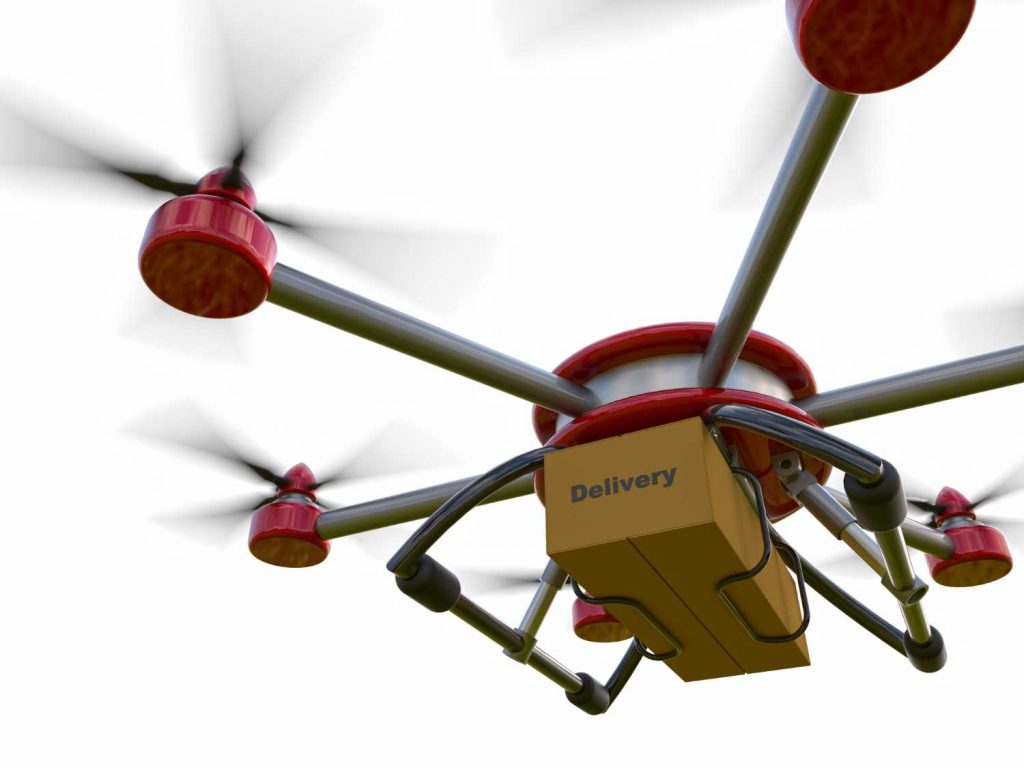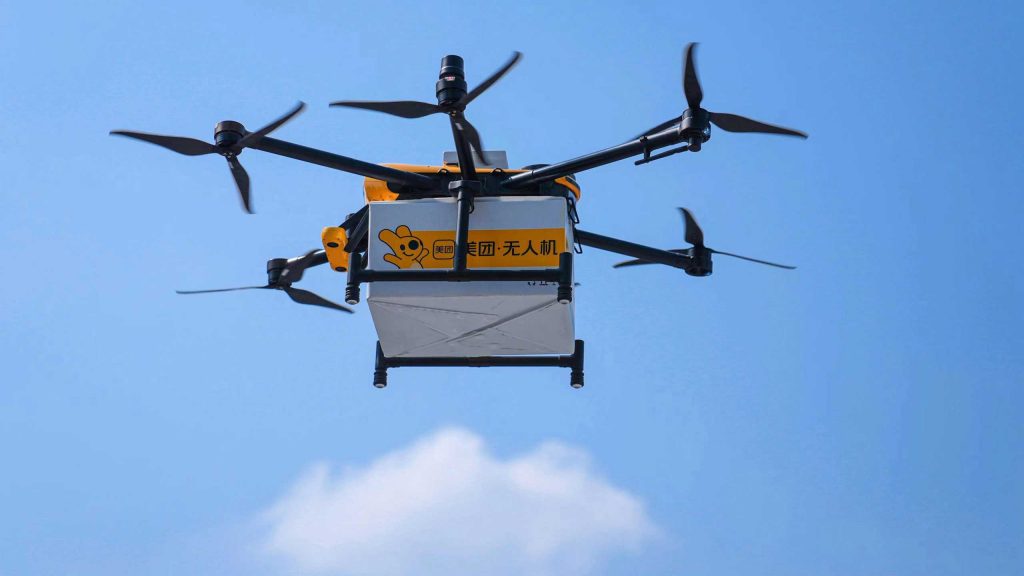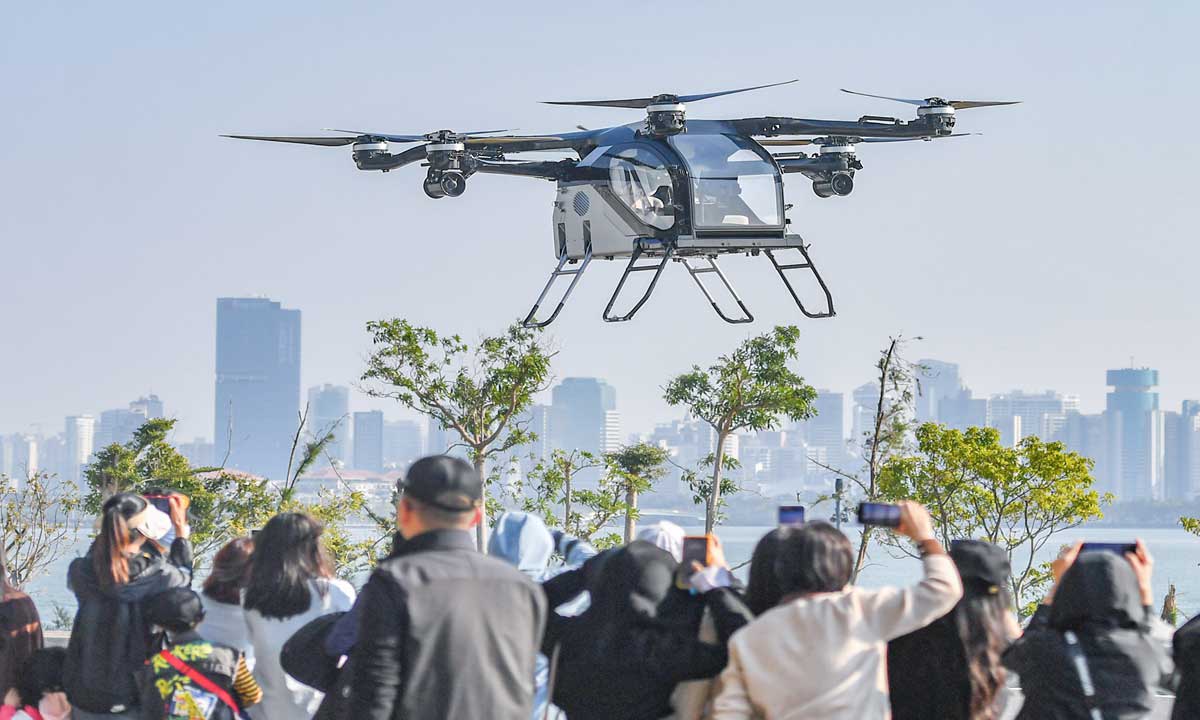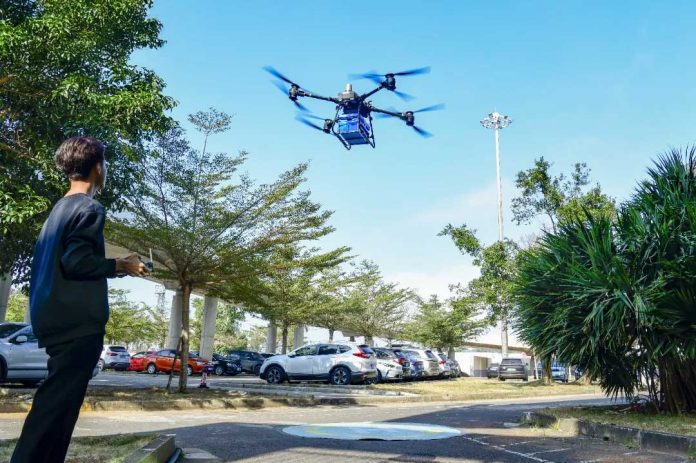In a significant step for logistics, Haikou has embraced drone technology to revolutionize the delivery of duty-free goods. Over the past month, Haikou Customs supervised 31 drone flights, transporting 240 orders with a total value exceeding 3 million yuan, cutting pickup times from six hours to under three.
The Rise of Drone Deliveries in Haikou
The inaugural drone delivery occurred on January 24, covering a distance of 1,133.5 meters from Haikou International Duty-Free City to Haikou South Port in just 1 minute and 24 seconds. This adoption of Drone Deliveries has been particularly beneficial during peak periods during the Spring Festival, where traditional logistics faced challenges due to a surge in duty-free orders.
Drone delivery systems are rapidly gaining traction in China, offering numerous advantages:

Efficiency and Speed: Drones can bypass road traffic, reducing delivery times, especially in congested urban areas.
Cost Savings: Automation reduces labor costs and energy consumption, leading to more economical delivery solutions.
Environmental Benefits: With a smaller carbon footprint than traditional vehicles, drones contribute to greener logistics.
Improved Accessibility: Drones can reach remote or disaster-stricken areas, ensuring timely delivery of essential supplies.
Challenges in Drone Delivery Adoption in Haikou
While Haikou is making strides in drone delivery, full-scale adoption still faces several challenges. Don’t expect drones to drop off packages at your doorstep just yet. Regulatory requirements, infrastructure limitations, public acceptance, safety concerns, and technological constraints, such as battery life and payload capacity, must all be addressed before widespread implementation becomes a reality.
Regulatory Hurdles
Hainan has been actively developing policies to support low-altitude economy initiatives, including drone logistics. However, regulatory oversight remains strict, especially for duty-free deliveries supervised by Haikou Customs. The need for real-time video monitoring, targeted inspections, and compliance with customs protocols ensures that goods remain untampered and meet legal requirements. While these measures enhance security, they also add layers of complexity.
Infrastructure Limitations
Currently, drone deliveries in Haikou are restricted to specific pre-approved routes and designated pickup points. For example, duty-free goods are flown from Haikou International Duty-Free City to Haikou South Port, but they are not yet being delivered directly to consumers’ homes.
Expanding beyond centralized pickup locations will require new infrastructure investments, including drone landing zones and automated distribution centers that can efficiently handle larger volumes of goods.
Public Perception and Acceptance

Consumer attitudes toward drone deliveries in China have been generally positive, particularly in cities like Shenzhen, where Meituan has completed over 100,000 drone deliveries. However, in new markets like Haikou, where drone logistics are in its early stages, public concerns about noise, safety, and airspace congestion may still emerge. Gaining consumer trust will require reliable service performance and clear communication on safety measures.
Safety and Security Risks
Drone logistics in China operates under strict flight control regulations, and companies must obtain approval before flights. While EHang and JD.com have successfully deployed autonomous drones in logistics, risks such as technical malfunctions, weather-related disruptions, and potential interference remain key challenges. To mitigate these risks, AI-powered navigation, geofencing, and redundant safety systems are being integrated into newer drone models.
Technological Constraints
Current drone models in use for logistics—such as those operated by Meituan, JD.com, and EHang—are optimized for short-distance and lightweight deliveries. The drones used in Haikou’s duty-free logistics service currently fly a short 1,133.5-meter route in just under 90 seconds, which is efficient for small-scale deliveries but not yet suitable for larger or long-range operations.
Advances in battery efficiency, autonomous flight technology, and drone-to-hub networks will be crucial for scaling up drone logistics beyond limited urban corridors.
Haikou’s use of drones for duty-free deliveries shows how this technology can improve modern supply chains. As drones become more advanced and regulations evolve, expect to see drone deliveries in Haikou play an increased role in making logistics faster, more sustainable, and more accessible.
Related article: Xpeng AeroHT Land Aircraft Carrier: Flying Car Set for 2026 Hainan Launch








